Aaron Rodgers: The Icon Era Begins
icon (i' kon) n. 1. One who is the object of great attention and devotion; an idol 2. Aaron Rodgers
By tundravision
There’s a natural cycle any great football player goes through. Most of the time, he enters the league as a player with high promise. Eventually, he becomes a star player, and grows into a leadership role. Then, as his popularity grows throughout the league, he becomes a superstar.
And then, if he continues to play at a high level, continues to get all of the media attention, and continues to be adored by fans (and hated by opposing fans), something else happens. At some point, the superstar becomes an icon.
What’s the difference, you ask? Every young player aspires to be a superstar someday. They are usually surprised when they become an icon. A superstar is a team leader and keystone on their side of the ball. An icon is the face of the organization. A superstar is someone the team looks to on game day to pull out a big play when the chips are down. An icon is the one you give all the credit to when they come through, and all the blame on when they don’t. A superstar is the guy whose jersey you wear with pride. An icon is the guy who you expect to see a picture of when a network advertises an upcoming game.
The icon is the flashpoint for a team, the topic nearly any conversation turns to when discussing the team, particularly by those on a national level.
And I think Aaron Rodgers may have just crossed the tipping point this offseason, and become an icon.
Now, before you rise up against me, thinking I’m accusing him of thinking he’s bigger than the team or whatnot, let me assure you of one important point: no player chooses to become an icon. It is something that is thrust upon him by adoring fans and overexposure in the media. Players don’t do this to themselves.
We make them icons.
This offseason, we saw a former player openly criticize QB1. Greg Jennings teased Rodgers for no longer owning the MVP trophy, for putting himself above the team, and worst of all, saying he preferred Brett Favre throwing balls to him.
What followed was a media and fan firestorm, with many rising to defend the honor of their beloved quarterback, while still others stopped to ponder if some of the accusations of Rodgers seeking the spotlight might actually be true. ESPN was jammed for several days with updates and analysis of the Rodgers/Jennings comments.
Perhaps you agreed with Jennings. More likely, you attacked anyone who suggested Rodgers might be less than a team player.
But one thing is for sure….everyone was talking about Aaron Rodgers.
One more thing is for certain: at age 30, Aaron Rodgers is likely at the top of his game, at a high-water mark for his career. As his skills decline, more criticism will follow. Jermichael Finley, Jennings, and Skip Bayless are just the first in what will be a long line of bashers over the next several years.
In many ways, you can draw several parallels to another Packer icon in Favre, and see that there are many milestones that would place Rodgers and Favre on similar tracks.
If you count the number of years since the Packers last won the Super Bowl, this would place Rodgers at roughly the same point where Favre was in 1999…they year that head coach Ray Rhodes publicly thanked Favre for “winning the game for us” in a post-game presser. Now that Rodgers also possesses a cap-crushing contract, the pressure is on just as much for Rodgers to win.
Now, to be fair, Favre is likely not the best comparative tool as the two players are very different. Favre was wildly popular, just as Rodgers is today, but his life was an open book for all to see, warts and all. We went through his drug addiction, suffered through his father’s death, knew all the names of his family (and their police records), and could always count on a long-winded interview. We looked the other way when we found out he had a dressing room area separate from the rest of the team.
Rodgers, to be fair, has far more in common with a Bart Starr or Joe Montana. A team PR director’s dream, Rodgers gives us just enough exposure to satisfy us, but keeps his personal life intensely private. We have to guess at the name of his girlfriends and assume the guy we see in the commercials is the same guy he is in real life. We like to believe he is grounded and a team guy all the way. After all, have we, the fans, seen any evidence to the contrary?
And yet, I remember attending training camp in 2005, Rodgers’ rookie season, and watching a young backup quarterback ride a bike back to the stadium from the Hutson Center, then oblige a crowd of not-so-polite fans with some autographs at the corral before heading in. My son and I had the chance to actually talk with him for a moment. This past summer, as player after player come out of the stadium to find their personal bike escort, I watched Rodgers hop into the back of a black SUV, barely acknowledging the cheers and petitions from the crowd, and get chauffeured down to the practice field. Quite a difference.
Now, before you attack me for even mentioning this comparison, stop a moment. How did reading that last paragraph affect you? Did you prepare yourself to blast me in the comment section for making any kind of insinuation about Aaron Rodgers’ dedication to the fans? Were you ready to defend the right of star players to pick and choose when they expose themselves to crowds rabid for their time? And, would you have been nearly as indignant if I had mentioned that Jarrett Bush was the one who had gotten into the SUV, instead of Rodgers?
This is the point: players don’t make themselves icons; we do. Just as Favre (and Marino and Lewis and Brady) can attest, they are the center of the storm that we choose to create around a beloved player. Sometimes, as in the case of Tim Tebow, a player can skip that whole “star” and “superstar” levels and advance right to “icon”. I think we can make the case that being an icon and a flashpoint for your team isn't always a good thing.
As with any burgeoning icon, Rodgers (for better or worse) assumes the mantle of “face of the team”, something that will only give credence to Jennings’ criticism. In the end, however, it’s going to be how he handles that pressure, that spotlight, and that attention. He’s done an incredible job so far, keeping his personal life under the radar in the face of a paparazzi and fanatical base of Packer Nationals.
The criticism will increase, perhaps even this season, simply because he’s becoming the eye of the storm. And we will continue to rise to his defense. Rodgers has likely learned a lot from watching his predecessor’s fall from grace, and (as he’s done all along) work not to repeat those mistakes.
The question is whether or not the fans and the media have learned from our mistakes.
-------------------------------
C.D. Angeli is a lifelong Packer fan and feature writer at CheeseheadTV. He is the co-host of the weekly Packers podcast Cheesehead Radio and is the good cop running PackersTalk.com. He loves it when people point out his articles are too long. Follow him on Twitter at @TundraVision.



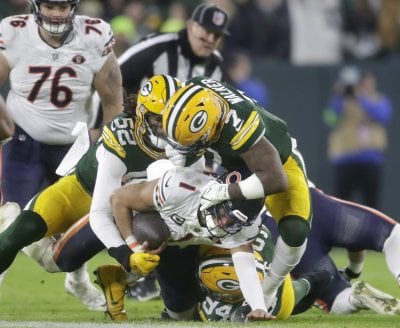
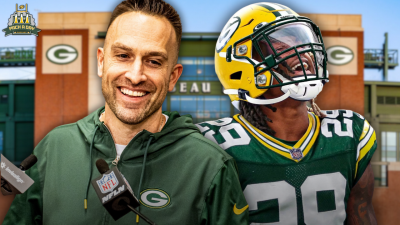
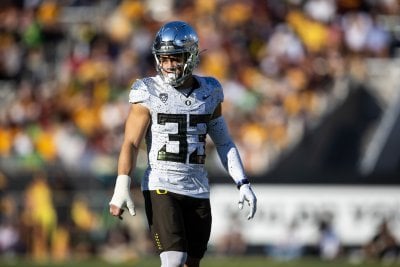
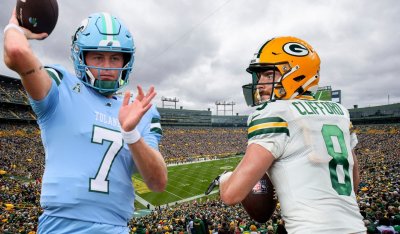


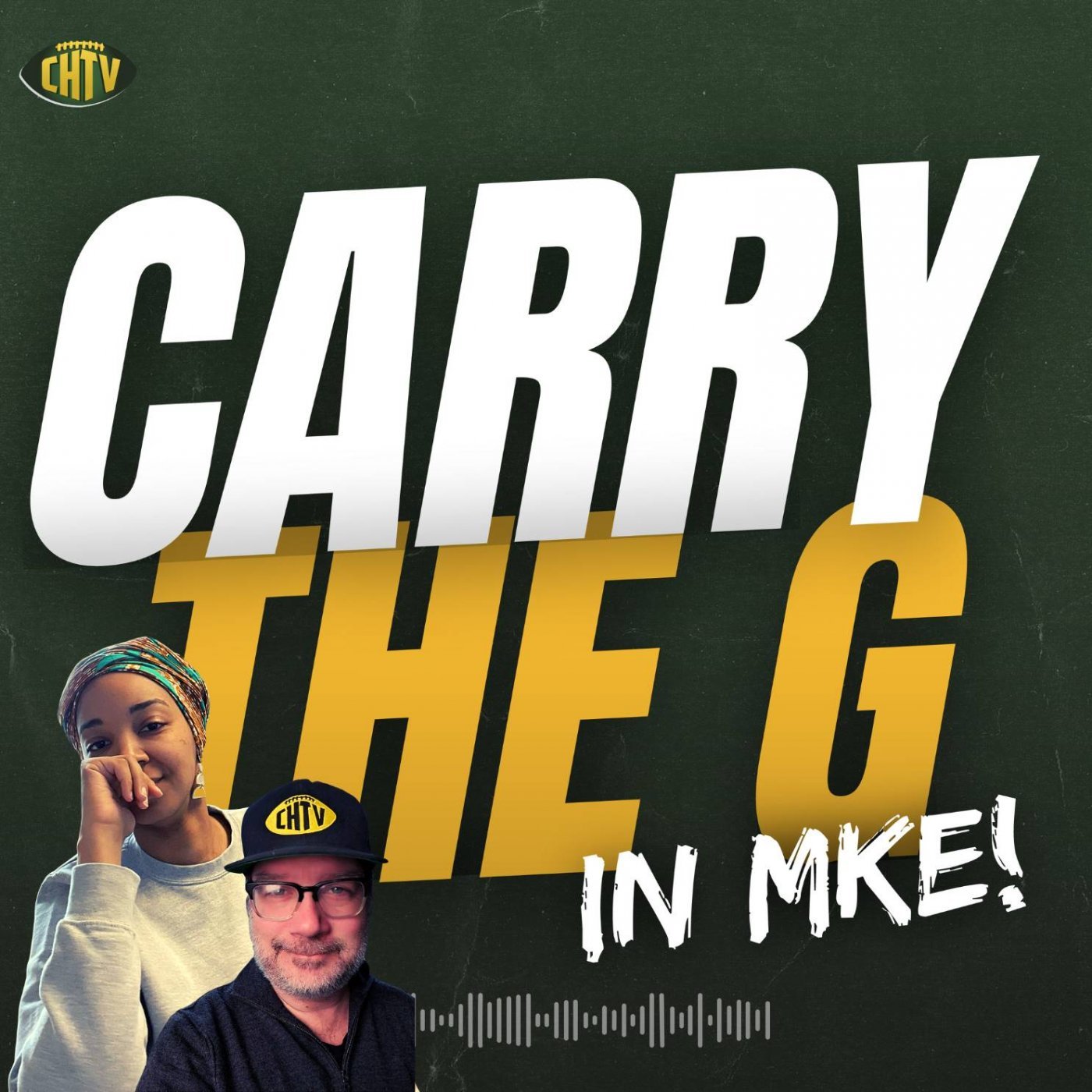



Comments (7)
September 08, 2013 at 10:20 am
After icon comes sainthood.
September 08, 2013 at 10:37 am
Unfair comparison. Rodgers was never blackmailed to purposely throw games.
September 08, 2013 at 10:52 am
I think it's impressive that he's managed to maintain privacy while being one of the most famous faces in the NFL. The hate is irrelevant. know how I know it's irrelevant? skip bayless talks about it. is rodgers rude to fans? no clue. I met shatner once and he was a douche. do people still like him? of course they do. being nice to people isn't what he was being paid for. if rodgers is winning games it's pretty whiny to expect belly rubs too. if you want a saint as your QB you basically get to pick between tebow or ralph nader.
September 08, 2013 at 11:03 am
Riding the bikes is a good indicator of how the player will react with the fans. It is unfortunate at times that the more popular players get hordes of people around them clamoring for an autograph. I imagine it gets pretty uncomfortable for the player being surrounded. But, to be fair, there are quite a few players who take the car and not the bike. I was at camp this year, and I saw John Kuhn and Jordy Nelson skip the bike rides. Many more players do. Its not just a Rodgers thing.
September 08, 2013 at 12:24 pm
CD, that is one well written article. Thank you.
Jayme Snowden
September 08, 2013 at 01:37 pm
CD,
I read all the words. Not too many.
Also, I agree.
yes.
September 10, 2013 at 02:18 pm
Once Upon A Time, a very astute individual and one of the earliest critics of the previous QB stated "He has been put on a pedestal, and a pedestal is not a good place for a flesh and blood human".
I think you are essentially correct that fans place the player in that position...at least some of the fans do...more than the player does, but I also think that some players very shrewdly manipulate the media to portray an image about them which is not true. Some say things like "I'll never play for a different team" when that just isn't true. Some portray themselves as family guys while they're out sending pervy pictures of themselves to young women.
So I think that if a player deliberately projects a false image of himself then he's at least partially responsible if fans take that and run with it.
Rodgers is an excellent QB. I personally think his window is MUCH smaller and will close MUCH more quickly than others. And you be be assured that this poster is not going to idolize him any more than I idolized the previous QB. We are not feeble-minded creatures, and we can chose NOT to idolize players who don't deserve it.